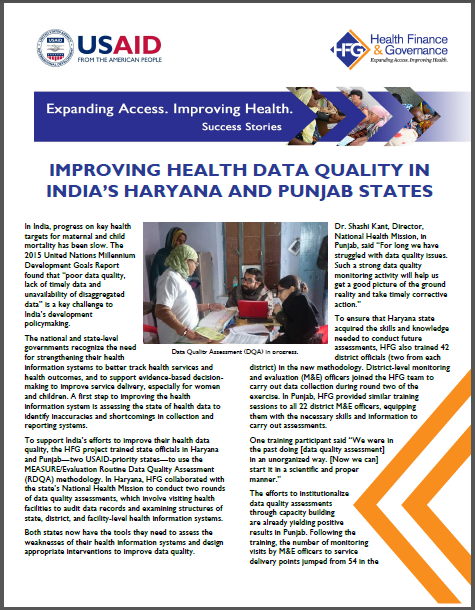Improving Health Data Quality in India’s Haryana and Punjab States
Categories: Publications, Where We Work
Resource Type: Success Story
Authors: Health Finance & Governance Project
Published: 1/1/2016
 Resource Description: In India, progress on key health targets for maternal and child mortality has been slow. The 2015 United Nations Millennium Development Goals Report found that “poor data quality, lack of timely data and unavailability of disaggregated data” is a key challenge to India’s development policymaking.
Resource Description: In India, progress on key health targets for maternal and child mortality has been slow. The 2015 United Nations Millennium Development Goals Report found that “poor data quality, lack of timely data and unavailability of disaggregated data” is a key challenge to India’s development policymaking.
The national and state-level governments recognize the need for strengthening their health information systems to better track health services and health outcomes, and to support evidence-based decision-making to improve service delivery, especially for women and children. A first step to improving the health information system is assessing the state of health data to identify inaccuracies and shortcomings in collection and reporting systems.
To support India’s efforts to improve their health data quality, the HFG project trained state officials in Haryana and Punjab—two USAID-priority states—to use the MEASURE/Evaluation Routine Data Quality Assessment (RDQA) methodology. In Haryana, HFG collaborated with the state’s National Health Mission to conduct two rounds of data quality assessments, which involve visiting health facilities to audit data records and examining structures of state, district, and facility-level health information systems.
Download



